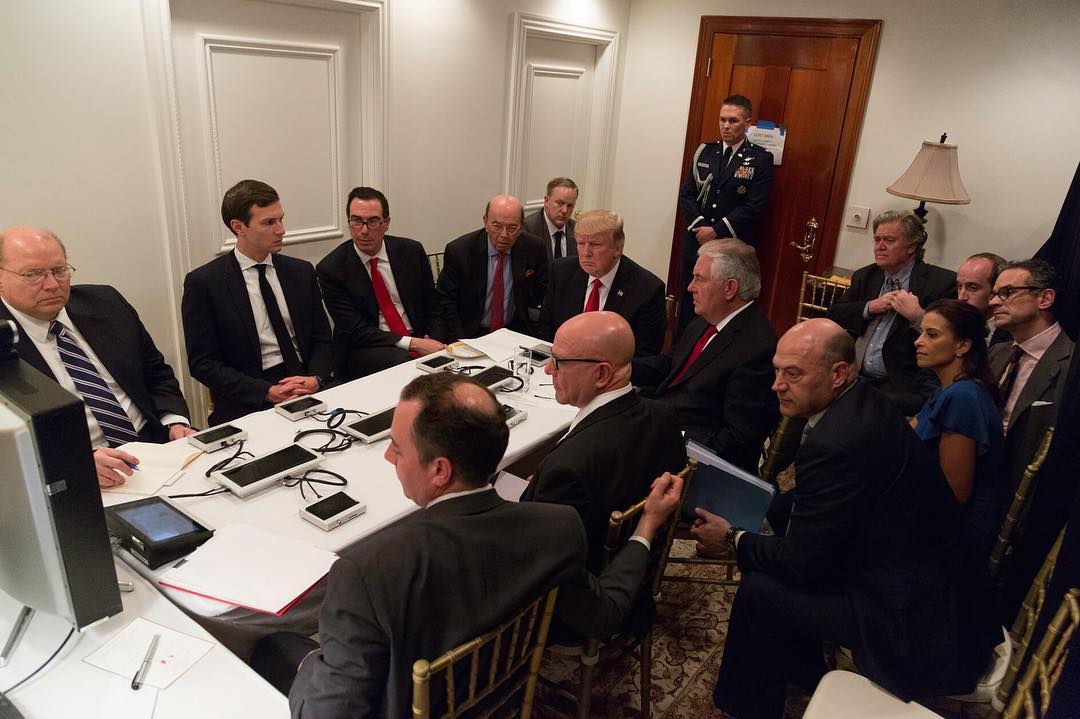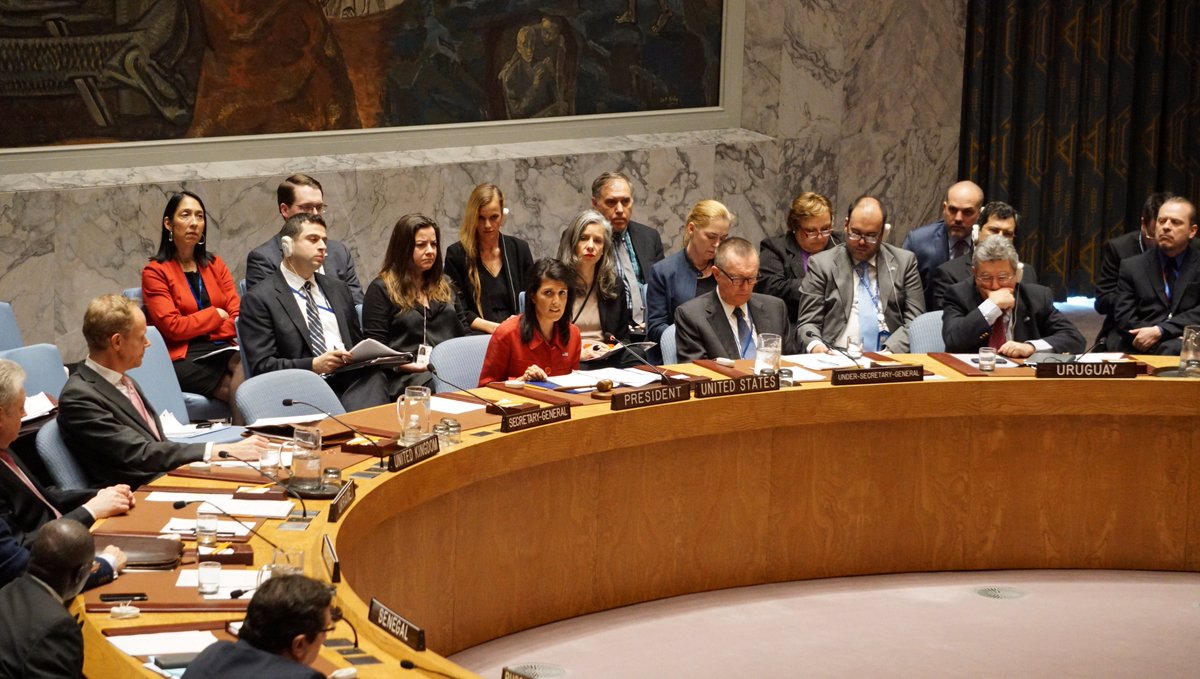By: Leila Sadat
Although one can fault the Obama administration for its tepid policy towards Syria, Trump’s airstrikes against a Syrian military base on Thursday, April 6th take the U.S. policy towards Syria in a dangerous new direction. Although it’s tempting to savor the Assad government’s temporary comeuppance, it is hard to see how the intervention can produce either any immediate positive results on the ground or any long term benefits. Because the strikes are aimed at a sovereign government, they clearly violate Article 2(4) of the United Nations Charter, unless they are justified either as self-defense (Article 51) or authorized by the Security Council (Articles 39-42). Neither justification is present here. Another possibility would be under the doctrines of humanitarian intervention, or the Responsibility to Protect, which also require Security Council authorization, although humanitarian intervention without clear authorization has been perceived by at least some sectors of the international community as legitimate in certain carefully conditioned circumstances.

President Trump meets with his national security team about the April 6, 2017 strikes in Syria. [Official White House Photo by Shealah Craighead, via White House Instagram]
One of those conditions may be present here based upon Trump’s statements regarding the purpose of the strikes, which are aimed at preventing further commission of ongoing crimes against humanity and war crimes by the Syrian regime, which is widely reported to have been responsible for the Sarin gas attacks on April 4th. That is why many have argued that the strike may have been morally justifiable; it may also have been proportionate given the relatively low number of casualties involved. The other conditions for the strikes’ legality, however, are absent. There is still no conclusion to the UN investigation into the origin and authors of the strike against Khan Shaykhun. Moreover, it is likely that the strikes will aggravate the ongoing crisis in Syria, as there appears to be no “end-game” or larger policy direction to the U.S. intervention. The U.S. and Russia have been bombing Syrian targets steadily for quite some time, with the Russians assisting the Syrians in attacking rebel forces and the Americans striking at ISIS. They have been coordinating their airstrikes (and the U.S. airstrikes have been pointedly ignored by the Syrian government thus far). Now all bets are off, both as regards to the fight against ISIS (by the United States) and the possibility of ending the civil war in Syria.

UN Security Council emergency meeting on Syria on April 7, 2017, after U.S. airstrikes. U.S. Ambassador to the UN Nikki Haley, center, leads discussions as the rotating Security Council President for the month of April. [via Twitter]
A UN Resolution was tabled on April 4th by France, the United States and the United Kingdom to address the chemical weapons strike of April 4th. That Resolution has not been voted on, however. Although efforts were ongoing prior to the U.S. missile strikes to reach consensus, the U.S. airstrikes effectively short-circuited that discussion, which makes it nearly impossible to put together the kind of broad coalition that could have given the strikes international legitimacy, as the Clinton administration did with respect to the 1999 NATO bombing campaign against Serbia. It is true that Russia is sure to veto action at the United Nations; but the action only has international legitimacy (if at all) if the United States works within the UN system, which, after all, it was a primary force in creating 70 years ago. If President Trump could turn this into a broad international effort, it could acquire legitimacy, and many States have indicated their willingness to support the U.S. in that endeavor. But thus far, that does not seem to be U.S. policy. Meanwhile, the Syrian government has resumed airstrikes against rebel positions.
As a matter of U.S. law, there was no Congressional authorization for the bombings, which do not appear to be justified under the current Congressional Resolution authorizing the use of force in Syria, whose language had already been stretched beyond recognition. In short, without Congressional support and a broad international coalition, the bombing seems more in the guise of a dangerous and illegal tit-for-tat than a sustained campaign to relieve the suffering of the Syrian people.
